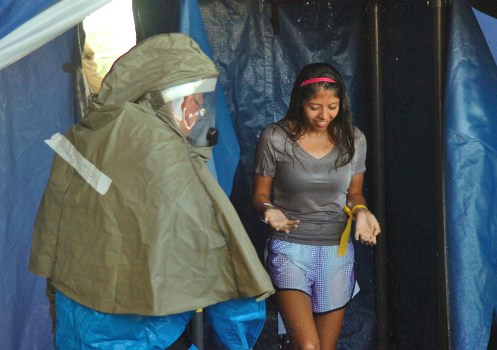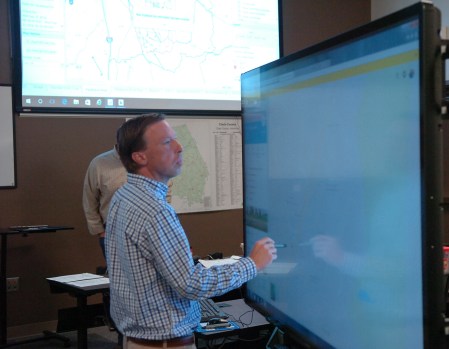CSEPP exercise tests community response
Published 11:12 am Thursday, September 22, 2016
Clark County emergency management and several other agencies and organizations put their response times to the test Wednesday morning during its annual Chemical Stockpile Emergency Preparedness Program (CSEPP) training exercise.
Beginning about 9 a.m., CSEPP officials simulated a leak of mustard gas from the Blue Grass Army Depot in Madison County.
According to CSEPP guidelines, some residents of northern Madison County may be required to evacuate to Winchester if sheltering in place is not an option. To prepare for the possibility of an evacuation, Emergency Management Director Gary Epperson requested that a reception center be established at Calvary Christian Church off of the bypass.
“The reception center is where people coming in will go so that we can see if they need to be transported to the hospital or for anything else,” Epperson said.
Because of the distance between Winchester and Richmond, Epperson said officials in Clark County anticipate the drift of chemicals in the air could cause some medical complications, but it is unlikely it would cause death by itself. Instead, a primary focus is on managing and potentially decontaminating any evacuees from Madison County.
The staff at Clark Regional Medical Center were also active during the exercise. That morning, a bus loaded with student volunteers from George Rogers Clark High School arrived at the emergency room, simulating a group of people affected by the mock leak at the depot.
Hospital staff established a secure area and put the students through decontamination before admitting them to the hospital for further evaluation.
Epperson said this year’s exercise went well, with only some minor hiccups related to technology.
“Things went pretty good,” he said. “We had a lot of new materials and some new software but the agencies worked well together and we had good participation.”
He said some minor issues with email caused a bit of chaos, but said unexpected chaos is welcome in training sessions because it helps prepare staff for potential upsets should an actual emergency occur.
“We’re going to train more on equipment, we still have some training to do on that, but the exercise went well,” Epperson said.
According to the Clark County EMA website, clarkema.com, in the event of an actual disaster at the depot Madison County and Estill counties are classified as immediate response zones, while Clark, Fayette, Garrard, Jackson, Powell and Rockcastle counties are classified as protective action zones. Jessamine and Laurel counties are classified as host counties.









